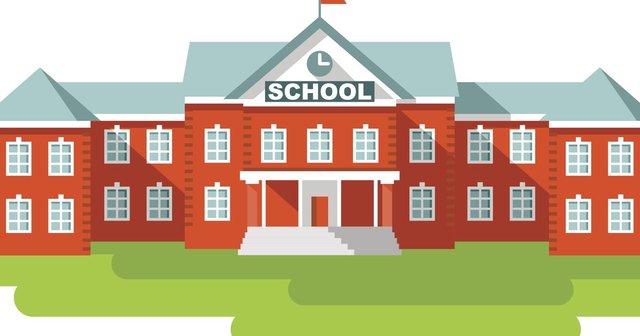Keeping kids out of the state-indoctrination centres known as schools is the best way to keep them safe. The biggest lessons taught in school are to obey authority and mindlessly regurgitate information, with little to no emphasis on critical thinking or free thought. The worst part? Obeying authority is instilled as a virtue and mindlessly regurgitating information is perceived as intelligence. Kids should be taught how to think, not what to think.
Authors get paid when people like you upvote their post.
If you enjoyed what you read here, create your account today and start earning FREE STEEM!
If you enjoyed what you read here, create your account today and start earning FREE STEEM!
Look how they controlled the kids yesterday after the school shooting in Florida .. Innocent kids had to put their hands on their heads, drop their backpacks in a pile and wait until they could be excused. Cops with guns pointing right at the kids while they leave the campus with their hands on their heads .. all for mind control .. scary stuff. I always love this topic!! Thanks so much @mckeever .. SUNSHINE247
Downvoting a post can decrease pending rewards and make it less visible. Common reasons:
Submit
Thanks for reading @sunshine247. It is a testament to the human spirit that, even after thousands of hours of indoctrination, we can still think for ourselves and champion the ideas of freedom, personal responsibility, and self-ownership.
Followed.
Downvoting a post can decrease pending rewards and make it less visible. Common reasons:
Submit
Not just schools but even most universities these days are mindless drone production centres. When you study social sciences or history, at best, you are churned out as a mockingbird wired to only tread well trodden paths. Go out of bounds and delve into subjects such as mind control or dark occult practices and you are ostracised and outcast in mainstream circles of academia.
Downvoting a post can decrease pending rewards and make it less visible. Common reasons:
Submit
Couple that with the violence we are seeing within the schools lately and you are building a strong argument for homeschooling
Downvoting a post can decrease pending rewards and make it less visible. Common reasons:
Submit
Indeed. Not only that, but all education should be voluntary. Parents shouldn't be coerced into sending their kids off to state-indoctrination camps. Thanks for reading and commenting.
Downvoting a post can decrease pending rewards and make it less visible. Common reasons:
Submit
It's no wonder at all to me that schools are such violent places. They're terrible places.
Downvoting a post can decrease pending rewards and make it less visible. Common reasons:
Submit
Kids may not be consciously aware of it, but the fact that they are forced into the schooling system wreaks havoc on their subconscious mind. Obviously this kid who shot up the school had an inner rage that he couldn't control; who knows where it stemmed from - maybe the schooling system.
Downvoting a post can decrease pending rewards and make it less visible. Common reasons:
Submit
Here is what the education is modeled off of. Notice the Rockefeller foundation was an early adopter. The same guy who was quoted saying we need people just smart enough to run the machine but not smart enough to ask why......
FROM WIKI:
The Prussian education system refers to the system of education established in Prussia as a result of educational reforms in the late 18th and early 19th century, which has had widespread influence since. It is predominantly used as an American political slogan in educational reform debates, since it was adopted by all American K–12 public schools and major universities as early as the late 18th century, and is often used as a derogatory term for education in the service of nation-building, teaching children and young adults blind obedience to authority, and reinforcing class and race prejudice.[1] The actual Prussian education system was introduced as a basic concept in the late 18th century and was significantly enhanced after Prussia's defeat in the early stages of the Napoleonic Wars. The Prussian educational reforms inspired other countries and remains important as a biopower in the Foucaultian sense for nation-building.[2] Compulsory education on the Prussian example was soon mirrored in Scandinavia, and United States started to adopt the Prussian example. Early American adopters include Daniel Coit Gilman, who set up The General Education Board, later renamed The Rockefeller Foundation, and first president of Johns Hopkins, John Dewey at the University of Chicago, James McKeen Cattell at The University of Pennsylvania and Columbia University, Henry Philip Tappan at The University of Michigan, James Earl Russell at the New York College for the Training of Teachers, and many more. France and the UK failed to introduce similar systems until the 1880s.
The term itself is not used in German literature, which refers to the primary aspects of the Humboldtian education ideal respectively as the Prussian reforms; however, the basic concept remains fruitful and has led to various debates and controversies. Twenty-first century primary and secondary education in Germany and beyond still embodies the legacy of the Prussian education system.
Downvoting a post can decrease pending rewards and make it less visible. Common reasons:
Submit